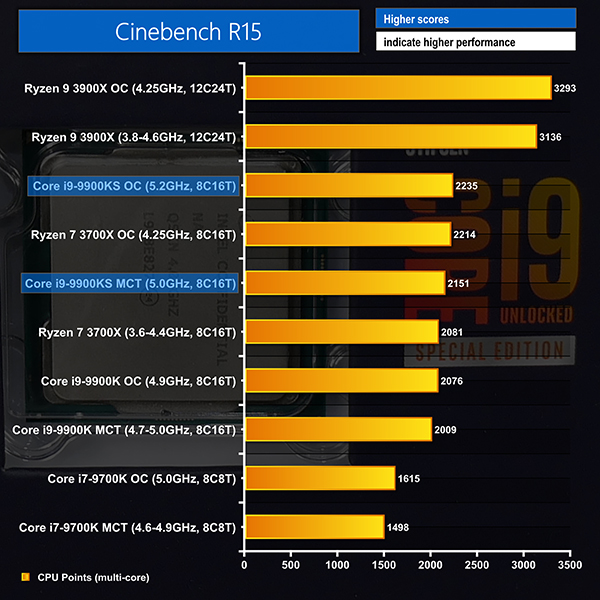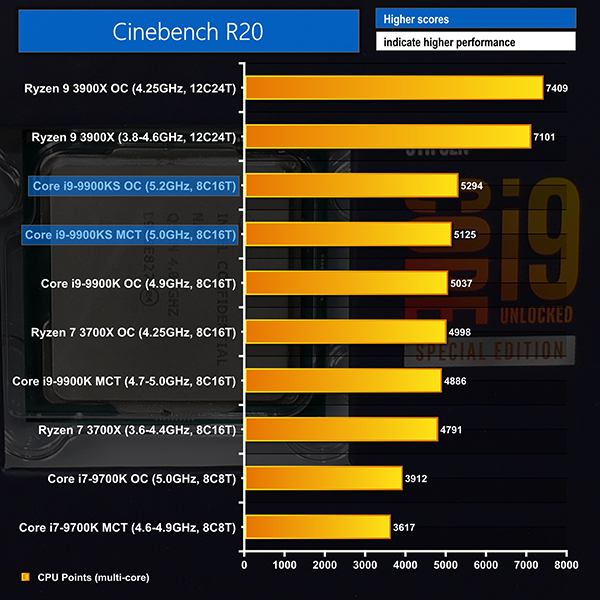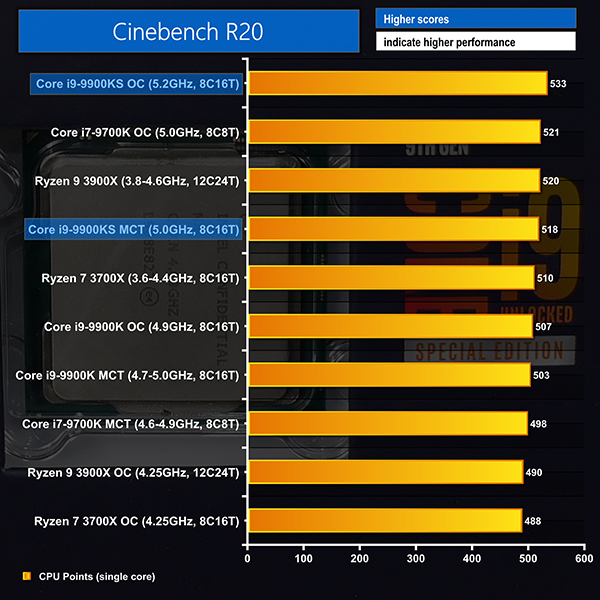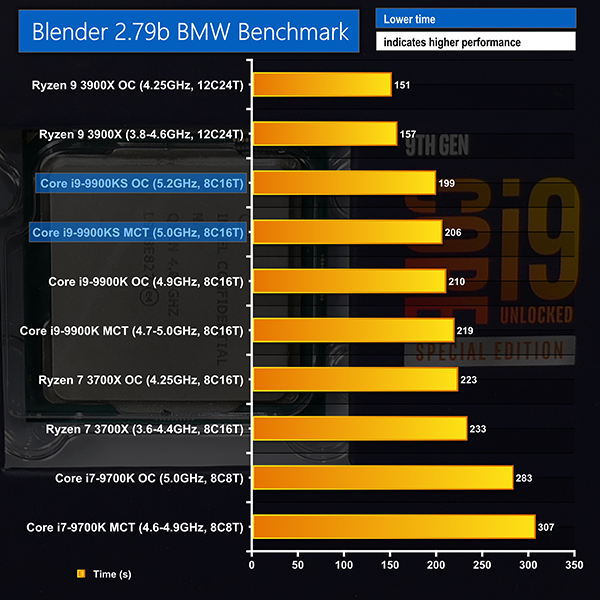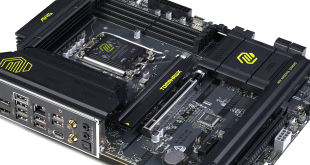Cinebench R15
Starting with Cinebench R15, we see Intel’s Core i9-9900KS deliver multi-core performance that is 7% faster than the stock 9900K. Overclocking to 5.2GHz adds another 84 points or 4% to the 9900KS’s score.
Compared to AMD, the 9900KS beats the cheaper Ryzen 7 3700X narrowly both at stock and overclocked speeds. The similarly priced Ryzen 9 3900X and its dozen Zen 2 cores comprehensively outperform Intel’s 5GHz octa-core by 46% stock versus stock.
Single-threaded performance gives the 9900KS a strong victory in Cinebench R15. Hovering around the top of our chart, even the efficient Zen 2 architecture cannot claw back enough performance to offset the sheer frequency advantage for Intel’s Coffee Lake Refresh chip. It really is impressive to see how far Intel has pushed the 14nm node for high-frequency performance. The 9900KS scores in this benchmark typify that point.
Cinebench R20
The 5GHz 9900KS is 5% faster than the stock 9900K in Cinebench R20 multi-threaded performance. AMD’s Ryzen 7 3700X is also beaten by 7%, though it is a cheaper product.
Versus the Ryzen 9 3900X price competitor, Intel’s 5GHz chip is handed a crushing performance defeat. The AMD Zen 2 12-core is faster by 39%.
Yet again, we see impressive single-threaded performance from the high-frequency 9900KS. Interestingly, the AGESA ABBA update for AMD’s Ryzen 3000 parts puts heavy pressure on the 5GHz Coffee Lake Refresh chip. Hitting 4.6GHz properly, the Ryzen 9 3900X actually beats Intel’s 9900KS by the slightest of margins at stock. Overclocked is where the 9900KS flexes its might, with the 5.2GHz clock speed opening up a 2.5% lead over the 3900X.
Blender BMW Benchmark
A 13 second time reduction versus the 9900K gives Intel’s 5GHz special edition part a 6% lead in Blender. Versus the similarly priced Ryzen 9 3900X, however, the 9900KS is beaten by a sizeable 49 seconds or 24%.
 KitGuru KitGuru.net – Tech News | Hardware News | Hardware Reviews | IOS | Mobile | Gaming | Graphics Cards
KitGuru KitGuru.net – Tech News | Hardware News | Hardware Reviews | IOS | Mobile | Gaming | Graphics Cards


